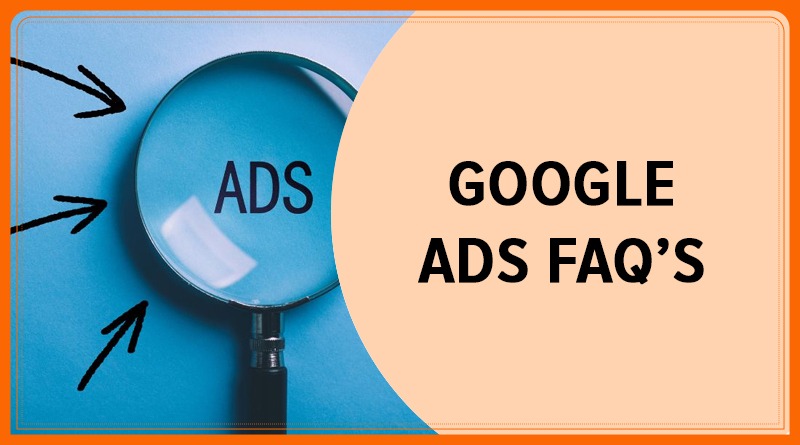Google Ads Interview Questions and Answers – From Basic to Advanced
Google Ads, formerly known as Google AdWords, is one of the most effective digital marketing platforms. Whether you are preparing for a digital marketing interview or aiming to improve your PPC skills, knowing the most common Google Ads interview questions and answers can make a big difference.
In this guide, we cover 48 top Google Ads interview questions with answers, explained in simple and clear language.
1. What’s the other name for Google Ads?
Google Ads was previously known as Google AdWords until July 2018.
2. Explain how Google Ads works?
Google Ads works on an auction-based system, where advertisers bid on keywords. The ad rank is calculated using the bid amount, Quality Score, and expected impact of extensions.
3. Why is PPC important in digital marketing?
- Delivers instant visibility.
- Targets specific audiences.
- Offers measurable ROI.
- Complements SEO for faster results.
4. Should PPC be used by big brands only?
No. PPC is useful for startups, small businesses, and enterprises, as it can be customized to any budget.
5. How many types of campaigns are there?
Google Ads offers several campaign types:
- Search campaigns
- Display campaigns
- Video campaigns (YouTube)
- Shopping campaigns
- App campaigns
- Performance Max campaigns
6. What is Quality Score?
Quality Score is Google’s rating (1–10) of ad relevance, landing page quality, and CTR. A higher score reduces CPC.
7. What is Ad Rank?
It determines the ad position in search results. Formula: Bid × Quality Score
8. How does ad auction work?
Each time a search happens, Google runs an auction to decide which ads to display and in what order.
9. What are the various ad extensions?
- Sitelink extensions
- Callout extensions
- Call extensions
- Location extensions
- Structured snippets
- Price extensions
10. What is the character limit for ads?
- Headlines: 30 characters (each)
- Description lines: 90 characters
- Display path: 15 characters
11. Which settings cannot be changed after account creation?
Currency and time zone cannot be changed once selected.
12. Ideal Quality Score?
A good score is 5 or higher for best performance.
13. What is CTR and how to calculate it?
CTR (Click-Through Rate) = (Clicks ÷ Impressions) × 100.
14. Difference between clicks and impressions?
- Clicks: Number of times users click an ad.
- Impressions: Number of times the ad is shown.
15. Automatic bidding strategies?
- Maximize clicks
- Target CPA
- Target ROAS
- Maximize conversions
- Target impression share
16. What is Conversion Optimizer?
A tool that helps maximize conversions by automatically adjusting bids.
17. Targeting options in Search Network ads:
- Keywords
- Location
- Device
- Language
- Ad schedule
18. Targeting options in Display ads:
- Topics
- Interests
- Demographics
- Placements
- Remarketing lists
19. Access levels in Google Ads:
- Admin
- Standard
- Read-only
- Billing
20. What is ad rotation?
It decides how ads has to rotate.
21. How can you track conversions?
By installing the Google Ads conversion tracking code or linking Google Analytics.
22. Difference between CPM, CPC, and CPV?
- CPM: Cost per thousand impressions.
- CPC: Cost per click.
- CPV: Cost per view (mainly video ads).
23. What is the search term report?
It shows the actual search terms people typed into Google that made your ads show up
24. Managed vs. Automatic placements:
- Managed: You choose the websites.
- Automatic: Google places ads based on targeting.
25. Types of keywords:
- Broad match
- Phrase match
- Exact match
- Negative keywords
26. Billing strategies:
- Manual payments
- Automatic payments
- Monthly invoicing
28. Why keyword insertion might not work?
- Character limit exceeded
- Policy violation
- Incorrect setup
29. How to improve ad position?
- Increase Quality Score
- Improve CTR
- Optimize landing pages
- Use ad extensions
30. Maximum length of destination URL?
Up to 2,048 characters.
31. Keyword match types?
- Broad match
- Phrase match
- Exact match
- Broad match modifier (deprecated but still found in some accounts)
32. Improve landing page quality?
- Fast loading speed
- Mobile-friendly
- Relevant content
- Clear call-to-action
33. Ways to increase conversion rates?
- Use strong CTAs
- Optimize keywords
- A/B test ads
- Add remarketing campaigns
34. What is Remarketing?
Targeting users who have already visited your website.
35. Google Quality Score?
Rating (1–10) measuring ad relevance, CTR, and landing page quality.
36. How many match types exist?
Three: Broad, Phrase, Exact.
37. What is frequency capping?
Limits the number of times an ad is shown to the same user.
38. Explain Click-to-Call.
A mobile ad feature allowing users to directly call your business.
39. IP Address exclusion?
Prevents ads from showing on specific IPs (e.g., competitors, internal staff).
40. First steps if ads get disapproved?
- Review Google policies
- Fix the issue (content, URL, etc.)
- Resubmit for approval
41. Maximum campaigns and ad groups?
- 10,000 campaigns
- 20,000 ad groups per campaign
42. What is a converted click?
An old metric showing the number of clicks that led to at least one conversion.
43. Why choose a career in PPC?
It’s data-driven, measurable, creative, and offers high demand with career growth.
44. How to calculate ROAS?
ROAS = Revenue ÷ Ad Spend.
45. Why use broad match with negatives?
It captures more traffic while negatives filter out irrelevant searches.
46. Challenges in PPC career?
- Keeping up with Google updates
- Managing budgets
- High competition
- Ad disapprovals
47. Best Quality Score?
A 10/10 Quality Score is the best, but 7+ is excellent.
48. Competitor analysis strategy?
- Use tools like SEMrush, Ahrefs, SpyFu
- Analyze competitor ads and keywords
- Offer better ad copy, landing pages, and bids
Conclusion
Google Ads interviews test your knowledge of PPC, bidding strategies, targeting, and optimization. By preparing with these 48 questions and answers, you can build confidence and show expertise. Remember, Google Ads success depends on continuous learning, optimization, and testing.
0 Comments
No comments yet. Be the first to comment!




Leave a comment